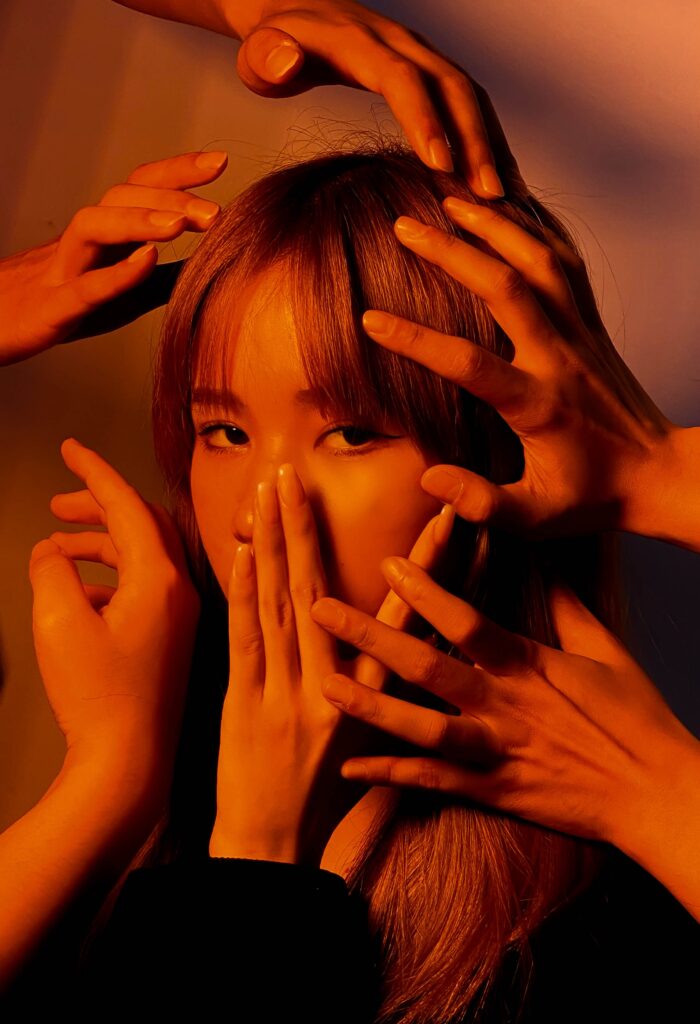In recent decades, the gender ratio in China has become increasingly imbalanced. The government only abolished the controversial One-Child Policy 2015, but the consequences are being felt to this day. And because the People’s Republic now has excess numbers of frustrated young men, the illegal trade in brides is steadily increasing.
SOLD INTO CHINA AS BRIDES…
According to an investigation by John Hopkins Bloomberg School of Public Health published in 2018, around 7,500 women and girls from Myanmar are already thought to have been sold into China, where they enter into forced marriages. Most of the victims originate from the crisis-bound states of Kachin and Shan, in the north of the country. The Vietnamese government also reports that something like 6,000 similar cases took place between 2012 and 2017 alone, although these estimated numbers could actually be far higher. Most are sold for a few thousand euros to older, ill or physically impaired men in remote rural regions of China. The majority are incarcerated, and forced to have sex so they will become pregnant. Very few ever return; and even if they do succeed in escaping their tormentors, such freedom comes at a price, as they have to leave their children behind, and give up any hope of ever seeing them again.
HUMAN TRAFFICKING, FORCED AND CHILD MARRIAGES– WHAT’S ACTUALLY THE DIFFERENCE?

According to the UN Human Trafficking Protocol of 2000 (Palermo Protocol, Art. 3), the term human trafficking refers to “the recruitment, transportation, shipment, accommodation or acceptance of persons by threat of violence or other forms of coercion (…) for the purpose of exploitation”. For adults, the term “human trafficking” is only used if the action takes place using unlawful means (including deception, exploitation of a forced situation, incarceration, etc.). For minors, by contrast, the offence is also viewed as having been fulfilled if none of the named means of pressure has been used. Similarly, the possible agreement of the child or their legal guardian is irrelevant in this latter context. Accordingly, girls and boys under 18 years of age who are taken into exploitative conditions count as victims of child trafficking, irrespective of whether violence or force has been used or not.
Essentially, a marriage may only be entered into with the free and unrestricted consent of the future spouses. Accordingly, a forced marriage takes place if the marriage takes place against the will of either one of the spouses. In many cases, the persons affected are placed under pressure or force to enter into the marriage. This can take place through physical, mental or emotional violence, blackmail or incarceration. Even in Austria, there are several hundred such cases every year.
Child marriage is a special form of forced marriage, when at least one of the partners is under 18 years old. Girls are particularly by hard-hit by child marriage, since in some countries they count as being of marrying age when they start menstruating.
THE BACKGROUND…
Since the implementation of the one-child policy, which was in place between 1979 and 2015, the Chinese population has been decreasing. This fall came together with an increasing imbalance between the genders, since male children – particularly in rural parts of the country – were preferred. This led to a situation whereby foetuses of female children were aborted more frequently. And the result? There are now estimated to be up to 40 million women too few in Chinese society. Forecasts indicate that by 2030, around one-quarter of men over the age of 30 will be unmarried, and there are already 17 million more men than women aged between 20 and 39.
This discrepancy has had a variety of consequences. According to Chinese tradition, the bridegroom must pay a dowry to his future parents-in-law before the marriage. Beforehand, this usually just involved a small gift of money. Since the numbers of women are now so low, however, their families are now in a position to be far more selective when choosing their partner. Although figures for “dowries” vary sharply, bridegrooms-to-be in many areas of China can now expect to pay anything up to 16,000 dollars (c. 13,000 euros) or more for their future bride. This has forced men from poorer regions, particularly rural areas, to seek new perspectives – a “child bride“ from Vietnam costs just 5,000 dollars (c. 4,000 euros), a fraction of this official amount. More and more frequently nowadays, single men will use the “services” of human traffickers, and import forced brides from neighbouring countries.
HUMAN TRAFFICKERS SHAMELESSLY EXPLOIT VICTIMS’ TRUST
Particularly concerning is the fact that ethnic and religious minority groups are impacted disproportionately by this phenomenon. The low social status of the victims also means the Chinese government is only affording the problem low priority. Women and girls from throughout the world, but particularly Vietnam and Myanmar, are lured by false promises and job opportunities, then sold to their tormentors. Often people they trust, such as friends or family members, will go behind their back. Once the women have been spirited away from their home country, they are handed over, defenceless. A large number of the girls and women also experience domestic and/or sexual violence. Not only does this lead to significant psychological and physical damage amongst the victims; it is also a risk to their physical health. Particularly troublesome is the fact that a majority of the “brides”, many of whom are still children, are forced to become pregnant and bear children before their bodies are physically able to do so safely. Those who attempt to flee are often imprisoned, taken away or violently returned to their “bridegrooms”.
A DIFFICULT RETURN
For those who succeed in making their escape, the trauma is far from over. Although the victims are taken back into the loving arms of their families in some cases, offers of help in their home villages are few and far between. According to Dinh Thi Minh Chau, a psychologist at the Vietnamese NGO Blue Dragon, many of the women taken are forced to do nothing for long periods of time in China, and are never allowed to leave the house. They simply don’t know how to handle their new-found freedom. Blue Dragon often offers the victims long-term aftercare and therapy. Rejoining the family is not always a smooth process, however, especially in small villages. The women are stigmatised, rumours abound, and there are very few opportunities for returning, Chau explains.
Translated by Tim Lywood
#Zwangsheirat #Zwangsverheiratung #Menschenhandel #Brauthandel #China #Vietnam #Myanmar #ModernerMenschenhandel #Kinderheirat #Zwangsehe #Kinderehe #AgainstHumanTrafficking #GegenMenschenhandel #EndExploitation #EndTrafficking #HopeForTheFuture #Österreich

